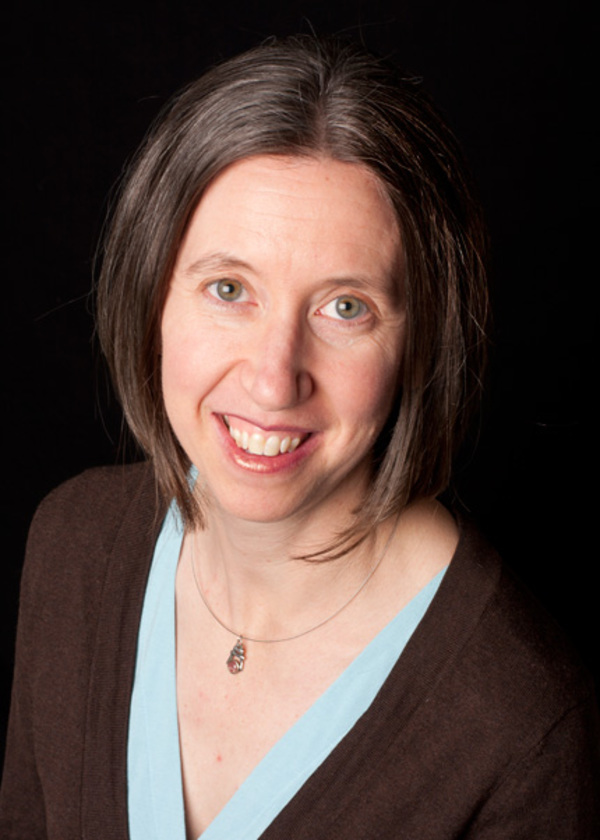Nancy Gates Madsen

Modern Languages and Cultures Department Head
About
Nancy Gates Madsen has been a professor in the Department of Modern Languages and Cultures since 2006. Her specialization is Latin American literature and culture, with particular emphasis on Argentina and the Southern Cone. Her research interests include dictatorship literature, memory studies, women’s writing, and environmental issues. Her book, Trauma, Taboo, and Truth-Telling: Listening to Silences in Postdictatorship Argentina, won the Modern Language Association’s Katherine Singer Kovacs prize for an outstanding book on Latin American and Spanish literatures and cultures. She is also the co-translator, with Kristin Dykstra, of Violet Island and Other Poems, a collection of the poetry of Reina María Rodríguez. Several poems she co-translated appear in Dykstra’s translation of Rodríguez’s The Winter Garden Photograph, which won the 2020 PEN America Literary Award for Poetry in Translation. Her current research looks at the intersections of ecological issues and human rights. Below is a list of selected publications. Some of her course topics include Memory and Political Violence in Latin American Literature, and Nature and the Environment in Latin America.
What is the course you like to teach the most?
It’s hard to pick a favorite, but one I especially enjoy is our Conversation and Listening Comprehension class (Spanish 302). As part of the course, students watch a popular Mexican soap opera. In class, students talk about the many twists and turns of the plot, produce skits in which they reproduce scenes from the show (or invent dialogues between the characters), and also explore the Latin American telenovela as a social phenomenon. It’s great to be able to incorporate such a linguistically and culturally rich element into this particular course, and since telenovelas are so addictive, students will often continue to watch the show even after the end of the semester!
Did you major in Spanish in college?
I was a history major, so I’m living proof that your future career is not defined by your major. Although I took many Spanish courses and studied abroad in Latin America, I really appreciated the opportunity I had at a liberal arts institution to take a variety of courses. I always enjoyed making connections between different areas of study, and this is something I continue to this day in my own research. I often find that my best ideas are inspired by something seemingly unrelated to my topic, such as when a reading of a Pakistani novel inspired a deeper consideration of the plight of children of the disappeared in Argentina.
What do you like about teaching Spanish at Luther?
I love being able to witness our students’ learning. In the classroom, it’s wonderfully gratifying to see the moment when a particularly thorny grammar point becomes somewhat clearer to students (hello, subjunctive!), or when a story, poem, or idea seems to come alive. During J-term study abroad courses, I enjoy seeing the progress our students make on a daily basis—from being somewhat timid about ordering food to boldly starting up conversations with strangers. And it’s always fun to teach a student in the early part of their Spanish learning, and then teach them again after their study abroad experience. Seeing their increased confidence and ability keeps me inspired and energized about my teaching.
- Ph.D., Spanish, University of Wisconsin-Madison
- M.A., Spanish, University of Wisconsin-Madison
- B.A., History, Carleton College
Trauma, Taboo, and Truth-Telling: Listening to Silences in Postdictatorship Argentina. Madison, WI: University of Wisconsin Press, June 2016. Winner, Modern Language Association’s Katherine Singer Kovacs Prize.
The Winter Garden Photograph. Translated by Kristin Dykstra with Nancy Gates Madsen. Ugly Duckling Presse, 2019. Winner, PEN America Poetry in Translation Award. Longlisted for the Best Translated Book Award. Honorable Mention, Foreward Indies Poetry Award.
Violet Island and Other Poems. Bilingual Anthology of the poetry of Reina María Rodríguez. Co-translated with Kristin Dykstra. Green Integer Press, 2004.
Articles and Book Chapters:
“Thinking Globally, Acting Locally: Ecology and Human Rights in Gioconda Belli’s Waslala.” Ecozon@, 11.1 (2020): 134-151.
“Seeing is (Not) Believing: Eliseo Subiela’s Dark Side of the Heart.” Eliseo Subiela, The Poet of Argentine Cinema. Ed. Nancy J. Mémbrez. Edwin Mellen Press, 2015.
“Marketing and Sacred Space: The Parque de la Memoria in Buenos Aires.” Accounting for Violence: Marketing Memory in Latin America. Eds. Ksenija Bilbija and Leigh A. Payne. Durham, NC: Duke UP, 2011.
“Art and Transitional Justice.” Co-authored with Rebecca Atencio. Encyclopedia of Transitional Justice. Eds. Lavinia Stan and Nadya Nedelsky. Cambridge UP, 2013. (Online edition published July 2014).
“Bearing False Witness? The Politics of Identity in Elsa Osorio’s My Name Is Light.” Pushing the Boundaries of Latin American Testimony: Meta-morphoses and Migrations. Eds. Janis Breckenridge and Louise Detwiler. New York: Palgrave Macmillan Press, 2012.
“Tortured Silence and Silenced Torture in Mario Benedetti’s Pedro y el capitán, Ariel Dorfman’s La muerte y la doncella and Eduardo Pavlovsky’s Paso de dos” Latin American Theatre Review, 41.2 (2008): 5-31.
In the Department of Modern Languages and Cultures at Luther College, you can study the languages, cultures, and literature of many areas of the globe. Knowledge of world languages and cultures can open up a whole new world for you. Your adventures in the MLLL department could include:
- Traveling and studying abroad
- Communicating with people of different cultural and linguistic backgrounds
- Service and professional opportunities
Students can pursue majors and/or minors in the following programs: